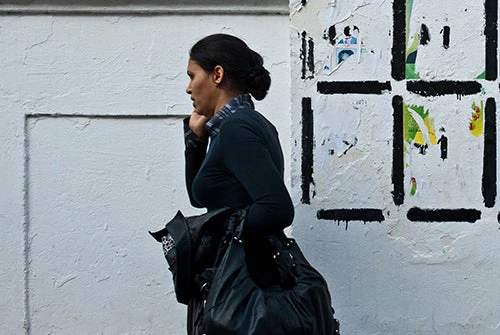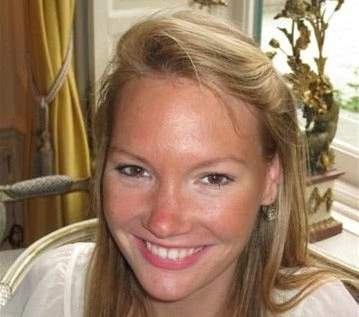 This Sunday, Tunisians will go vote for the third time this year. The first vote, the Parliamentary election on October 26, saw the secular-leaning political party Nidaa Tounes gain the majority of votes in the country’s fist free and fair election since the new constitution. As no candidate received more than the required 50% of all votes, a runoff between the two leading candidates is scheduled for Sunday. Voters will now decide whether political veteran, 88-year-old Beji Caid Essebsi or former human rights activist and revolutionary figure, 69-year-old Moncef Marzouki is best suited to lead the country for the next five years. .
This Sunday, Tunisians will go vote for the third time this year. The first vote, the Parliamentary election on October 26, saw the secular-leaning political party Nidaa Tounes gain the majority of votes in the country’s fist free and fair election since the new constitution. As no candidate received more than the required 50% of all votes, a runoff between the two leading candidates is scheduled for Sunday. Voters will now decide whether political veteran, 88-year-old Beji Caid Essebsi or former human rights activist and revolutionary figure, 69-year-old Moncef Marzouki is best suited to lead the country for the next five years. .
The country’s democratic transition has been hailed as a success but low voter turnout, especially among the country’s youth, has been an ongoing concern. Many young voters feel marginalised and disappointed with their country’s development since the revolution. Will you vote? I ask Ben Hadi Ali Mohamed, a 24-year-old shopkeeper. “Of course,” he responded, defying many of his peers. He is hoping the electoral process will improve the country’s economic situation, which to him, and many others in Tunisia, is the number one priority as the country enters a new phase of its nascent democratic transition. The unemployment rate is estimated at around 15%, but believed to be the double that among the young. “There are no jobs, the country is going down,” he said and waved with his arms at the small shopping street outside his shoe boutique in central Sousse, “Look, you can see it.” That’s why Marzouki, the ‘great professor,’ as he described him, will get his vote. But whether it will be Marzouki or Essebsi, he would like to tell the next President: “Improve Tunisia, please.”
Another concern ahead of the elections has been security. Since the revolution, Tunisia has experienced an upsurge of radical violence; including two assassinations of secular, political leaders and a number of attacks on the country’s security forces. This is why Jamel Hela, currently studying for her Master’s degree, will give her vote to Essebsi. ’For the sake of security,’ she explained. Marzouki doesn’t have the experience needed, she argued. Her message to Essebsi is clear: “Protect our Tunisia!”
Essebsi is seen by many of his supporters as a strong leader figure with the political experience required to restore security in the post-revolutionary country. However, the veteran’s political involvement, both during Tunisia’s first president since independence, Habib Bourguiba and the former president Zine El Abidine Ben Ali, has raised questions about his commitment to democracy. A presidential victory will also mean that his party Nidaa Tounes will dominate the young democracy’s political scene. The 21-year-old Nihel would therefore like to tell Essebsi, “Be a political participant first and not an authoritarian candidate.” But despite the concern with authoritarianism, she is still hoping Essebsi will gain the majority of votes and hands out an Essebsi flyer with a smile.
“Love Tunisia before you love yourself, your political party and your background,” is 21-year old student Htiwech Iheb’s message to the country’s future President. Iheb is volunteering for the youth organization ‘Sawty,’ which has been trying to encourage young people to register to vote and play a more active part in their country’s political future. A lot can happen in the final moments before the Election Day, many are still undecided, he said and added that, regardless of the candidate, he hopes Tunisians will vote for the good of Tunisia and that young people will turn up and vote.
Wala Kasmi, founder of the organization ‘Youth Decides’, which is working to empower young people, argues that politicians don’t appeal to the youth. This is despite the fact that Essebsi opened his Presidential campaign at a youth café in downtown Tunis, where he was seen humming to the popular Tunisian hit song ‘Houmani.’ The famous rap artist El General even performed at one of Marzouki’s political rallies in Menzah, a suburb of Tunis. ‘Many youth don’t feel represented by the politicians,’ explained Kasmi and added, “They need to speak directly to us.” She predicts that the coming election will also see a low youth turnout.Youth Decides has published a petition online in order to try to encourage and put pressure on the two candidates to prioritise youth questions and actively seek out the youth vote. In a last minute attempt to get as many young voters as possible to raise their voice on Sunday, Youth Decides has been arranging political youth debates in the week before the elections. ’There are no youth debates in the media,’ argued Kasmi. Her message to the future President of Tunisia: “If you care about the future of the country, you have to care about the youth.”


Join the Conversation